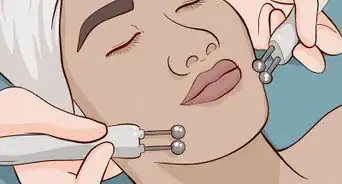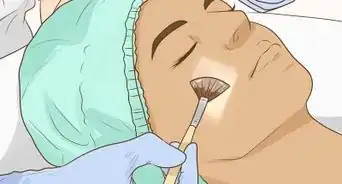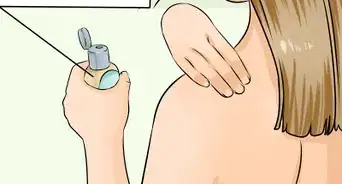This article was co-authored by Margareth Pierre-Louis, MD. Dr. Margareth Pierre-Louis is a board certified Dermatologist and Dermatopathologist, Physician Entrepreneur, and the Founder of Twin Cities Dermatology Center and Equation Skin Care in Minneapolis, Minnesota. Twin Cities Dermatology Center is a comprehensive dermatology clinic treating patients of all ages through clinical dermatology, cosmetic dermatology, and telemedicine. Equation Skin Care was created to provide the best in evidence-based, natural skin care products. Dr. Pierre-Louis earned a BS in Biology and an MBA from Duke University, an MD from the University of North Carolina at Chapel Hill, completed a residency in dermatology at the University of Minnesota, and completed a dermatopathology fellowship at Washington University in St Louis. Dr. Pierre-Louis is board certified in dermatology, cutaneous surgery, and dermatopathology by the American Boards of Dermatology and Pathology.
There are 7 references cited in this article, which can be found at the bottom of the page.
This article has been viewed 38,778 times.
If you tried bleaching your face or using skin lightening products and weren't satisfied with the results, there are a few ways you can help your skin heal and get back to normal. If your skin is giving off a burning sensation from the bleach, try doing things like washing it with coconut milk or applying aloe vera to help soothe your face. If you want to help your skin return to its original hue, eating foods high in carotenoids, drinking lots of water, and using gentle cleansers will help it heal faster.
Steps
Soothing the Burning Feeling
-
1Use cold water or ice cubes on your face to numb the pain. Splash your face gently with cold water to help relieve the burning feeling left from the bleach. You can also take an ice cube and move it over your face as it melts to help numb the skin and relieve pain from the burn.[1]
- Run the ice cube under running water first so that it doesn’t stick to your skin.
-
2Smooth aloe vera gel on your skin to help the burn. Squeeze out a dollop of aloe vera and use clean fingers to smooth it over the parts of your face that feel irritated. Use a small amount at first, adding more later on if your skin continues to burn slightly.[2]
- Purchase aloe vera in a lotion or gel form from a drug store or big box store.
- You can also cut off a piece of an aloe vera plant, smearing the plant’s natural gel onto your face.
Advertisement -
3Wash your face with coconut milk to soothe the skin. Coconut milk is great for moisturizing the skin, and it has several other health benefits. Purchase coconut milk and splash it onto your face gently, You could also try soaking up coconut milk with a paper towel or cotton ball before patting your face with the liquid.[3]
- Coconut milk has anti-inflammatory, antibacterial, and anti-fungal properties.
-
4Cover your face with potato peels for their anti-inflammatory effects. Wash 1-2 white or yellow potatoes and then use a potato peeler to remove the outer skin from each one. Place the peels on your face twice a day for a few minutes to help soothe your skin.[4]
- You may need to lay down while doing this so that the peels stay in place on your face.
-
5Put lavender essential oil on your face for its antiseptic qualities. Use a cotton ball to apply the lavender essential oil to your face, making sure to dilute it first with witch hazel, coconut oil, or water. Swipe the cotton ball across the bleached area of your skin, doing this every few hours until you start to feel the effects.[5]
- Purchase lavender essential oil from a big box store or online.
- Because it's so concentrated, dilute the lavender essential oil by combining a few drops of the lavender oil with roughly 1 teaspoon (4.9 ml) of coconut oil, witch hazel, or water.
-
6Avoid direct sunlight to prevent further damage. Staying out in the sun will irritate your face, causing the burning feeling to intensify. Try to avoid going outside when the sun is super bright so that your skin can heal.[6]
- If you do go outside, wear a hat that helps shield your face or use an umbrella to keep your skin out of the sun.
Getting Your Skin Back to Normal
-
1Stop using bleaching products immediately. Get rid of your bleaching creams and skin lightening peels. This is important not only so that your skin doesn’t get any lighter, but so that you don’t cause additional damage and burning sensations. Avoid continuing with your bleaching treatment so your skin can begin to heal.[7] Be especially wary of products such as hydroquinone, as they can cause irreversible discoloration and skin darkening.[8]
-
2See a dermatologist if you’re concerned about your skin. If your skin is still in pain from the bleaching and isn’t getting any better, schedule an appointment with your dermatologist. They will be able to give you advice for how to soothe your skin, or may be able to prescribe you something that will help as well.[9]
- Call the dermatologist’s office to schedule an appointment with them.
-
3Use gentle cleansers to wash your face. While your face is irritated, it’s best not to use anything too strong on it to prevent bothering it more. Use gentle, soothing soaps and cleansers if you’re going to wash your face, rinsing with cool water once you’re finished.[10]
- Look for cleansers that have natural ingredients in them like sea algae, turmeric, cucumber, or coconut oil.
- If you need to moisturize your face, use natural remedies like cucumber and honey if possible.
-
4Put sunscreen on your face if you’re going out in the sun. It’s best to try to stay out of the sun as much as possible while your face heals, but if you have to go out in it, apply sunscreen to your face beforehand.[11] Rub it in gently, paying close attention to the spots that are irritated.[12]
- Look for sunscreens that have both UV-A and UV-B protection.
- Use an SPF of 30 or higher, and reapply the sunscreen every 2 hours if you're outdoors.[13]
-
5Eat foods that are high in carotenoids. Carotenoids are known to give your skin a naturally darker color and have several health benefits. Incorporate foods like carrots, tomatoes, mangoes, and leafy greens into your diet to bring your skin back to its natural hue.[14]
- Carotenoids are pigments in plants that give off a red, orange, and yellow tint.
- Consuming carotenoids can help boost your immune system and prevent certain types of diseases.
-
6Drink lots of water. While you can stay hydrated by drinking other healthy options like tea or juice, water is the best option as it helps your skin heal faster. Try to drink at least 8 c (1.9 l) of water a day, drinking even more if possible.[15]
- It's recommended that the average person drink 8 c (1.9 l) of water, while small children may need to drink less.
-
7Give your face time to heal. While you may want a more immediate fix, time is ultimately the thing that will help your skin get back to normal. Continue being gentle with your skin and give it a couple weeks to heal.
- If your skin isn’t feeling better within a week or two, it might be time to schedule an appointment with a doctor.
Expert Q&A
-
QuestionWhat are the side effects of bleaching your skin?
 Margareth Pierre-Louis, MDDr. Margareth Pierre-Louis is a board certified Dermatologist and Dermatopathologist, Physician Entrepreneur, and the Founder of Twin Cities Dermatology Center and Equation Skin Care in Minneapolis, Minnesota. Twin Cities Dermatology Center is a comprehensive dermatology clinic treating patients of all ages through clinical dermatology, cosmetic dermatology, and telemedicine. Equation Skin Care was created to provide the best in evidence-based, natural skin care products. Dr. Pierre-Louis earned a BS in Biology and an MBA from Duke University, an MD from the University of North Carolina at Chapel Hill, completed a residency in dermatology at the University of Minnesota, and completed a dermatopathology fellowship at Washington University in St Louis. Dr. Pierre-Louis is board certified in dermatology, cutaneous surgery, and dermatopathology by the American Boards of Dermatology and Pathology.
Margareth Pierre-Louis, MDDr. Margareth Pierre-Louis is a board certified Dermatologist and Dermatopathologist, Physician Entrepreneur, and the Founder of Twin Cities Dermatology Center and Equation Skin Care in Minneapolis, Minnesota. Twin Cities Dermatology Center is a comprehensive dermatology clinic treating patients of all ages through clinical dermatology, cosmetic dermatology, and telemedicine. Equation Skin Care was created to provide the best in evidence-based, natural skin care products. Dr. Pierre-Louis earned a BS in Biology and an MBA from Duke University, an MD from the University of North Carolina at Chapel Hill, completed a residency in dermatology at the University of Minnesota, and completed a dermatopathology fellowship at Washington University in St Louis. Dr. Pierre-Louis is board certified in dermatology, cutaneous surgery, and dermatopathology by the American Boards of Dermatology and Pathology.
Board Certified Dermatologist Bleaching the skin can cause irreversible skin darkening, and the darker your skin type, the more vulnerable you are to this damage. If you are trying to avoid these effects, you can do a lot by using sunscreen every day, as it will keep the tanning effects of the sun off of the darker pigment of your skin. Try using more natural products when bleaching your skin and couple this with good sunscreen use daily to help minimize any sun damage.
Bleaching the skin can cause irreversible skin darkening, and the darker your skin type, the more vulnerable you are to this damage. If you are trying to avoid these effects, you can do a lot by using sunscreen every day, as it will keep the tanning effects of the sun off of the darker pigment of your skin. Try using more natural products when bleaching your skin and couple this with good sunscreen use daily to help minimize any sun damage.
Things You'll Need
- Aloe vera (optional)
- Coconut oil (optional)
- Potatoes (optional)
- Lavender essential oil (optional)
- Food with carotenoids (optional)
- Gentle cleansers
- Sunscreen
- Paper towels
- Cotton balls
- Potato peeler (optional)
Warnings
- See a doctor or dermatologist if your skin is still painful or not healing properly.⧼thumbs_response⧽
- If you apply something to your face that worsens the burning feeling, stop using the product immediately.⧼thumbs_response⧽
References
- ↑ https://makeupandbeauty.com/how-to-cure-your-bleach-burned-skin/
- ↑ https://makeupandbeauty.com/how-to-cure-your-bleach-burned-skin/
- ↑ https://makeupandbeauty.com/how-to-cure-your-bleach-burned-skin/
- ↑ https://makeupandbeauty.com/how-to-cure-your-bleach-burned-skin/
- ↑ https://makeupandbeauty.com/how-to-cure-your-bleach-burned-skin/
- ↑ https://makeupandbeauty.com/how-to-cure-your-bleach-burned-skin/
- ↑ https://healthfully.com/go-skin-color-after-bleaching-5777470.html
- ↑ Margareth Pierre-Louis, MD. Board Certified Dermatologist. Expert Interview.15 May 2020.
- ↑ https://healthfully.com/go-skin-color-after-bleaching-5777470.html
- ↑ https://www.self.com/gallery/dermatologist-approved-products-sensitive-skin
- ↑ Margareth Pierre-Louis, MD. Board Certified Dermatologist. Expert Interview.15 May 2020.
- ↑ https://www.health.com/health/gallery/0,,20818090,00.html?
- ↑ Margareth Pierre-Louis, MD. Board Certified Dermatologist. Expert Interview.15 May 2020.
- ↑ https://www.npr.org/sections/thesalt/2012/03/07/148148858/the-secret-to-glowing-yellow-skin-eat-your-fruits-and-veggies
- ↑ https://www.uwhealth.org/madison-plastic-surgery/the-benefits-of-drinking-water-for-your-skin/26334
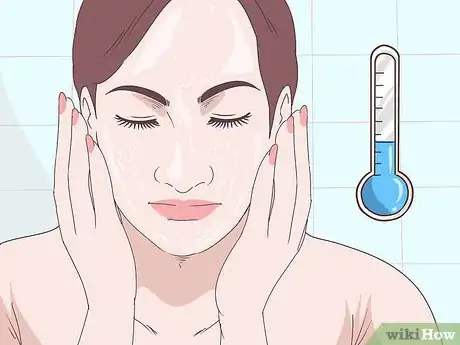












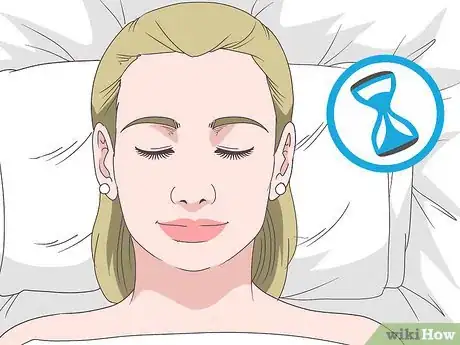
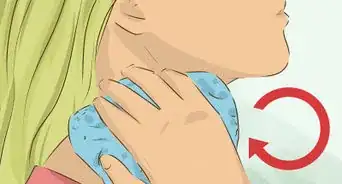




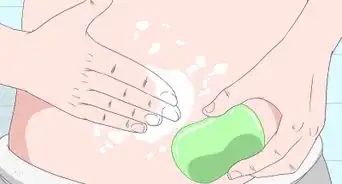
-Electric-Shock-Step-9.webp)

